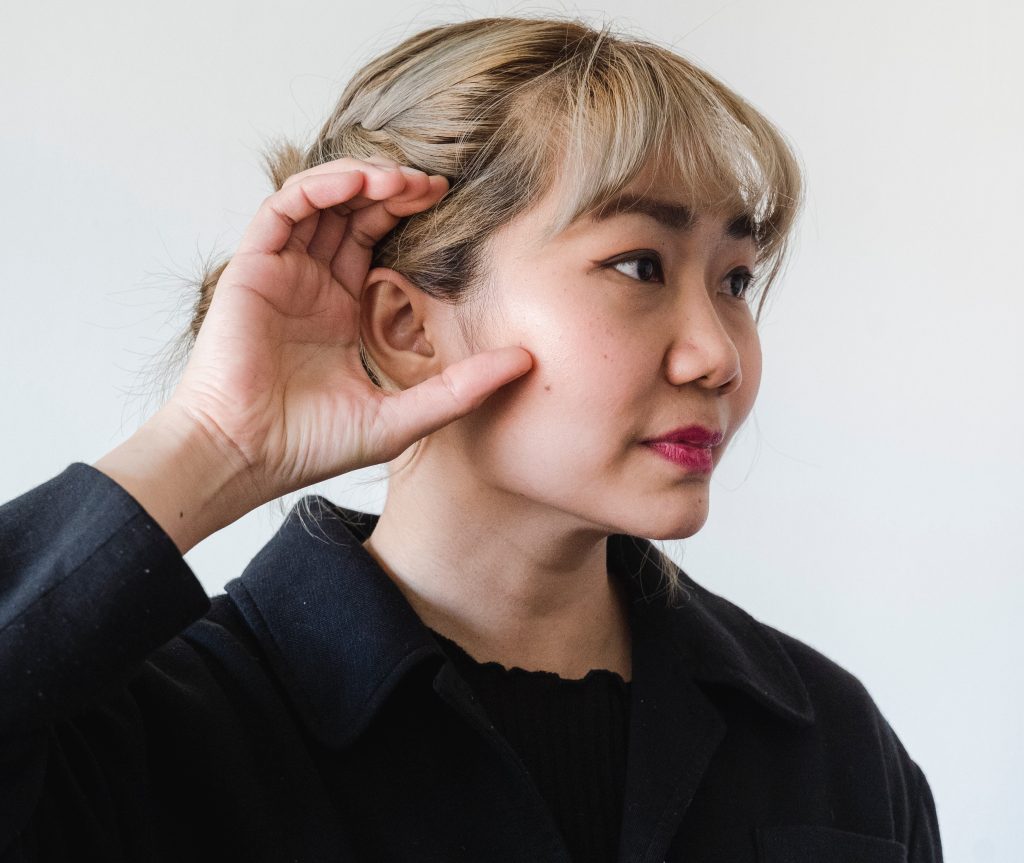Menu
Close

The art of listening: Six steps to being a better listener
Jul 8, 2022
You might have a thousand Facebook friends or followers on Instagram. Or maybe you have friends the “old-fashioned” way. In any case, we know that having a good community of friends is about the quality – and not the quantity – of our relationships. And communication is at the core. So, if we want to strengthen our relationships, practicing the art of listening is an effective strategy.
Hearing or listening?
So, what is so special about this act of listening that we call it an “art”? Before getting into the details, let’s say that good listening is something you feel when you experience it, or when you are a part of it. It is a way of being present that goes beyond the simple act of being on the phone with someone or in the same room when they’re speaking.
Good listening is active, unlike simply “hearing” which is much more passive. Listening is about making sure the person talking to us knows we’re really there with them. Empathy is a key ingredient of true listening. The person speaking will not only feel heard, but also understood. If this art of listening sounds a little mysterious or hard to do, here are actually a few simple tips for improving your skills, and in the process, making your relationships stronger.
Listening tips:
- Make it known that you are listening
Even if it is very clear to you that you are giving someone your complete attention, simple phrases like ‘’I’m here for you’’ or ‘’I’m listening’’ can go a long way and be very meaningful.
- Avoid distractions
Our lives are full of distractions and making space to really listen can improve your connection with the other person. That might mean simply going somewhere where you won’t be disturbed, silencing your email and text notifications, or turning off your phone altogether.
- This is not about you
Showing someone empathy is not about what you feel, think or see as the right thing to do. Instead, it’s about trying to put yourself in their shoes. Avoid the urge to give advice or your opinion right away and focus on what they are saying, feeling, etc. Check yourself: if you’re “listening” to a friend or colleague and end up talking more than they do, you may not be really listening.
- Don’t put too much pressure on yourself to get it right
Self-consciousness can get in the way of quality listening. It is hard to be truly attentive when you are focused on not making a mistake or on trying to find the perfect thing to say next. Remember, you are not there to fix the other person or their problem. You are there being present and letting the other person know you understand.
- Don’t underestimate the power of real listening
Have you ever said ‘’I’m sorry I couldn’t help you more” or ‘’I don’t know what to say’’ when someone has shared or even vented? Chances are the response has been some variation of: ‘’Don’t be sorry, I feel so much better just getting it off my chest!’’. By offering someone an attentive ear, you are already doing so much.
- Beware of comments that accidentally undercut the other person
It can be hard to hear that someone you love is suffering, and you may be tempted to respond: ‘’Don’t be sad!’’ or ‘’Stop worrying, it’s not that bad!’’. Although you might have the best of intentions, such a response can make someone feel like you aren’t taking their pain seriously. They might feel that you are “invalidating” or “minimizing” their feelings. When in doubt, rephrasing can go a long way. Rephrasing is restating in your own words what you heard someone express. It shows the other person you’re listening and offers an opportunity to make sure you’ve understood correctly. For example, a friend tells you how overwhelmed she feels about all her projects at work. You could rephrase by saying: ‘’Sounds like you’ve got a lot on your plate at work right now. It does seem overwhelming.’’ When done well, rephrasing can be a powerful tool to make someone feel heard.
The art of listening is like any art—it requires practice and commitment. The more empathic conversations you have, the more comfortable you will be at listening!
